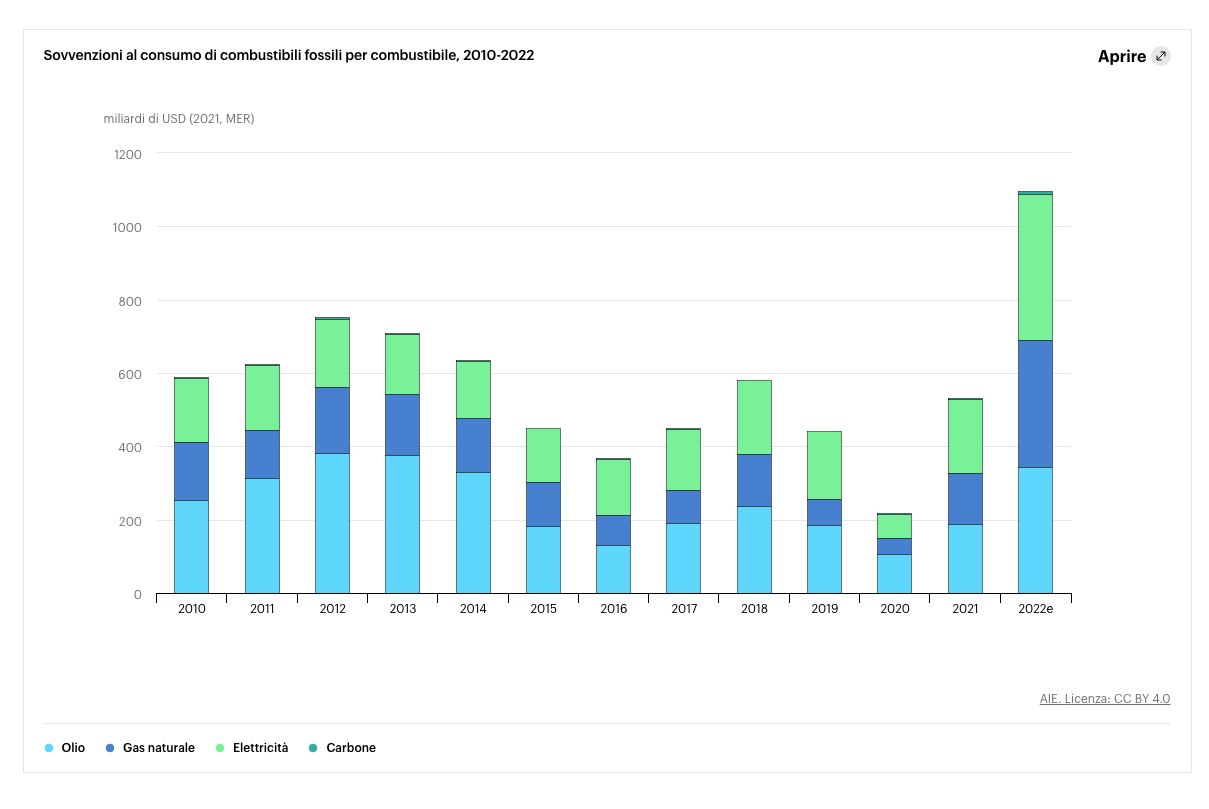In 2022 reached $1 trillion in fossil fuel subsidies. When will we understand that structural changes are needed?
The IEA report, in addition to subsidies for fossil fuels, also highlights $ 500 billion of spending to reduce bills, of which 350 billion in Europe alone

The new IEA report highlights data on global fossil fuel consumption subsidies, which reached $1 trillion in 2022.
This is an alarming fact, which should prompt us to reflect on the importance of structural changes rather than adopting emergency subsidies, often not properly targeted.
Fossil fuel subsidies: the record level never seen before
Fossil fuel prices were exceptionally high during 2022 as a result of the Russian-Ukrainian war that caused cuts in Russian natural gas supplies, especially to Europe. However, the prices actually paid by consumers remained at a much lower level because a series of policy interventions isolated users from the price increase, with the negative effect of maintaining fossil fuels as a primary source.
In 2022, subsidies around the world soared to a record high of over $1 trillion. To understand exponential growth, the chart below compares 12 years, from 2010 to 2022. As you can see, 2022 is a record year.

Source: IEA
In addition, the IEA monitored over $500 billion in extra spending to reduce energy bills in 2022, including $350 billion in Europe. In Europe, a key role has been played by all forms of incentives for reducing consumer bills. However, the IEA points out that such interventions are often not well targeted.
Soaring growth in fossil fuel subsidies must lead to structural thinking
IEA in the report stresses the urgent need to rethink the energy system in its entirety. The surge in fossil fuel consumption subsidies leads to important reflections on the energy transition:
- Subsidies to lower the price of fossil fuels are not the best way to drive clean energy transitions;
- Subsidies are rarely well targeted to protect vulnerable groups and tend to benefit the wealthier segments of the population;
- Better to spend on structural change than emergency aid.
Related Focus



